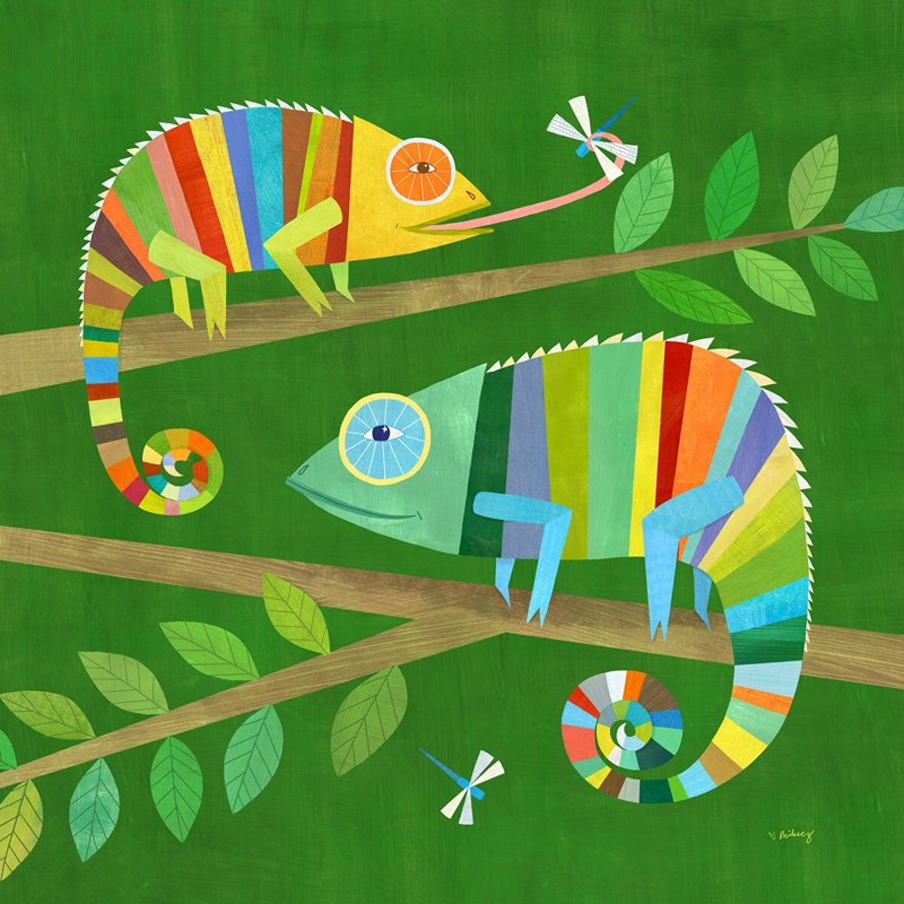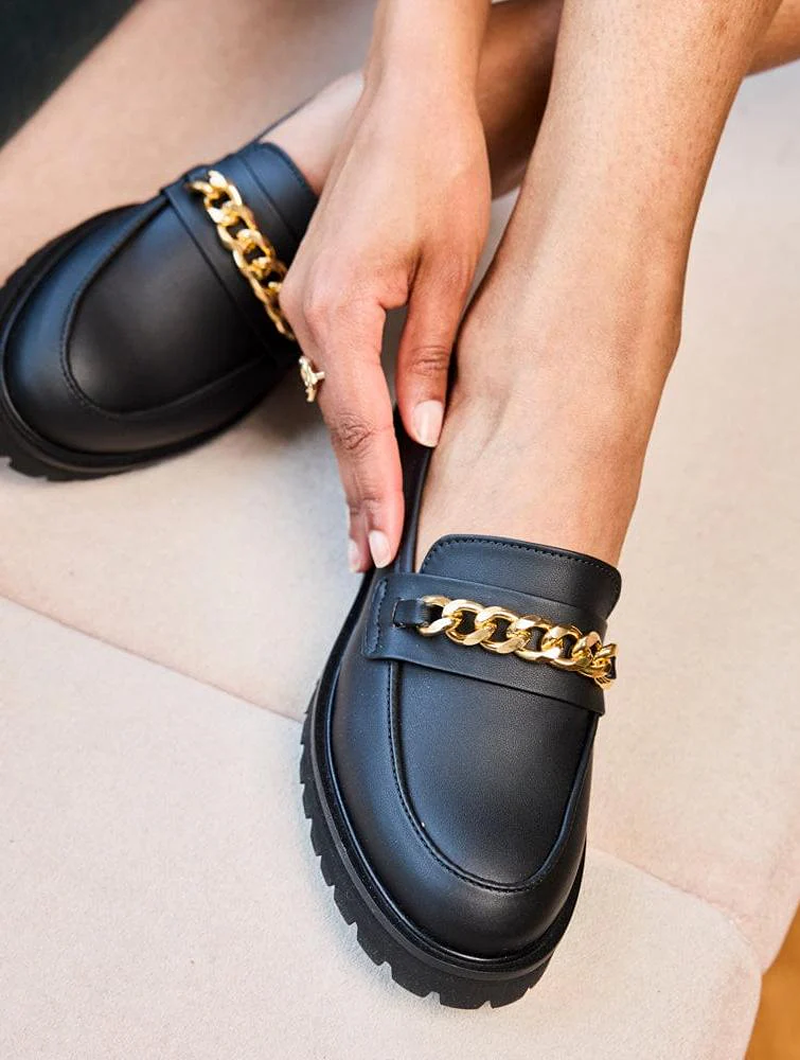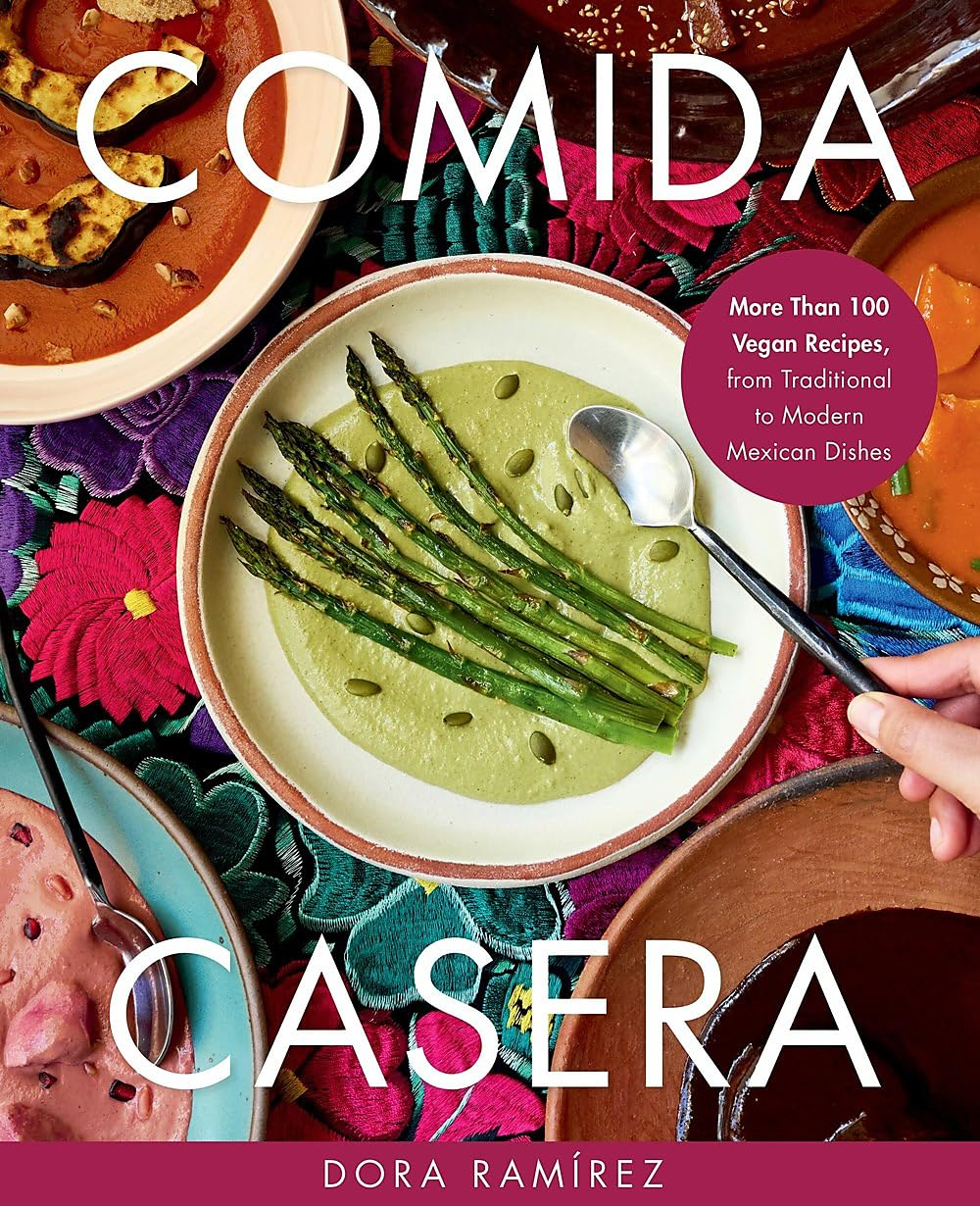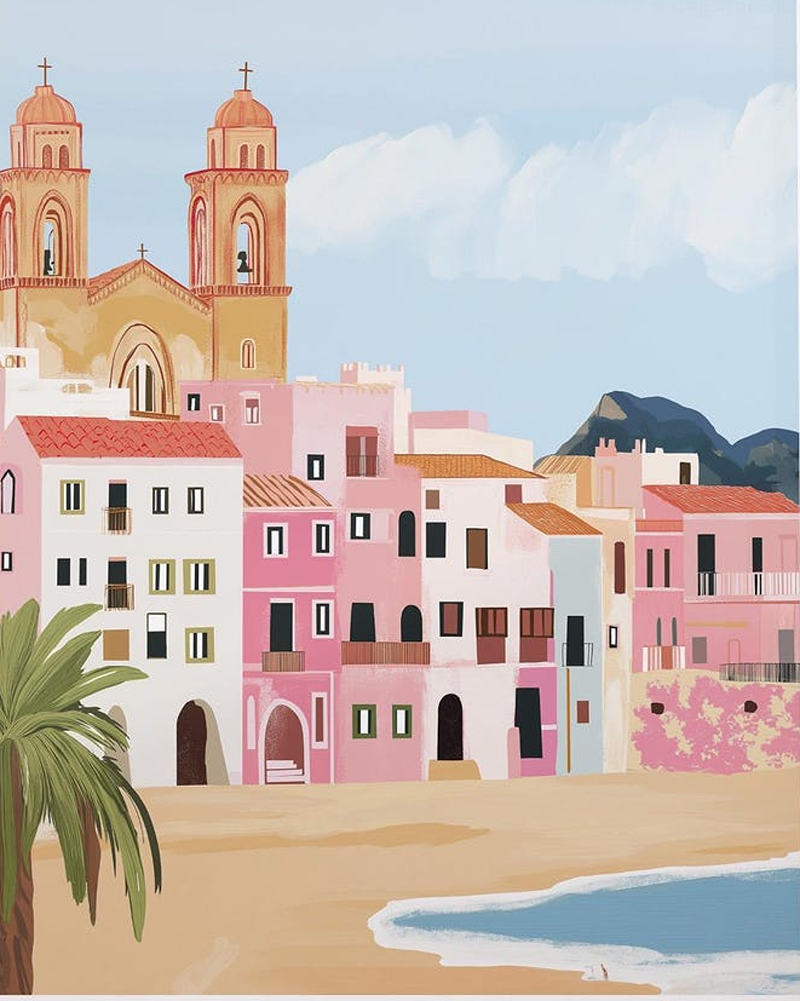
Sicily is closer geographically to North Africa than Italy, the largest island in the Mediterranean sea. Its links to the mafia are not so great these days, it’s more known for tourism and the TV series Inspector Montalbano. It’s also home to Mount Etna, ana active volcano. Like our island, it has many environmental issues including frequent droughts and plastic pollution. But it has done huge things to make a difference, which we can learn from.
Blighted by Marine Litter
The Mediterranean Sea has a combined population of around 150 million people living on the coast, which means it’s now one of the most littered seas on earth, home to many busy shipping routes, cruise ships and tourists. Due to being a semi-enclosed ocean, litter collects here – Calypso Deep contains an average 26,000 (mostly plastic) items per square kilometre). Despite being home to just 1% of global waters, it is now home to 7% of the world’s microplastics.
So locals participate in volunteer beach cleans and educate visitors not to drop their trash on beaches, or over the side of ships. Read our post for sustainable sailors!
Living with Drought
Like England, Sicily suffers severe droughts, in a country much hotter than ours. Whereas our wheat and other crops are affected, it’s the same for Sicilian farmers, though they grow more olives and citrus groves.
Some farmers have been left without running water for months, goats having to graze on dry weeds and drink from muddy ponds, to survive. So old drip irrigation systems are now being used, alongside modern technology.
In England, Forage Aid can supply free feed for farmers, in case of natural disasters or financial difficulties.
What is Causing Droughts in Sicily?
Without doubt, Sicily’s droughts are being caused by climate change and the add-ons of wildfires and over-tourism (which increases demand on water supplies).
This is where it is so dangerous to believe MPs that deny climate change science (like those in Reform UK and some Conservatives). The livestock industry is very water-intensive. So eating more plants is one of the most effective (indirect) ways to save water worldwide. 90% of the UK’s water is used for agriculture (just 5% for home use).
Protecting its 76 Nature Reserves
Along with four regional parks, Sicily is home to a whopping 76 nature reserves, many of them lying along the coast, and including quiet wetlands that are home to rare birds, wildcats and even flamingos (not just in Chile!)
Nesting seabirds and endangered sea turtles all have homes here, benefiting from a growing number of Italians who are doing all they can to protect coastal dunes to mountain slopes.
Collettivo Rewild Sicily was founded by ecological experts, who are working to restore natural habitats for creatures like native eels. It’s even creating a beautifully-named ‘Forest of the Seven Heavens’, a food forest designed to regenerate soil, nourish wildlife and protect areas from wildfires. Locals can buy trees ‘to donate to the Sicilian landscape) helping to create a natural circle of life.
Volcanoes: Adapt or Risk Disaster
Of course, in England we don’t have active volcanoes. But eruptions from Etna are forcing communities to look again at how climate change is affecting weather and local agriculture. Ash and lava can sometimes even create rich soil for grapes.
Whereas years ago an eruption would have induced awe and wonder, today rescue teams work round-the-clock to rescue people who should not be nearby. They have found people taking selfies ‘without a shirt’, one brought a baby to the area, another even began cooking sausages in the lava.
Sicily Environmental Fund: Good Idea!
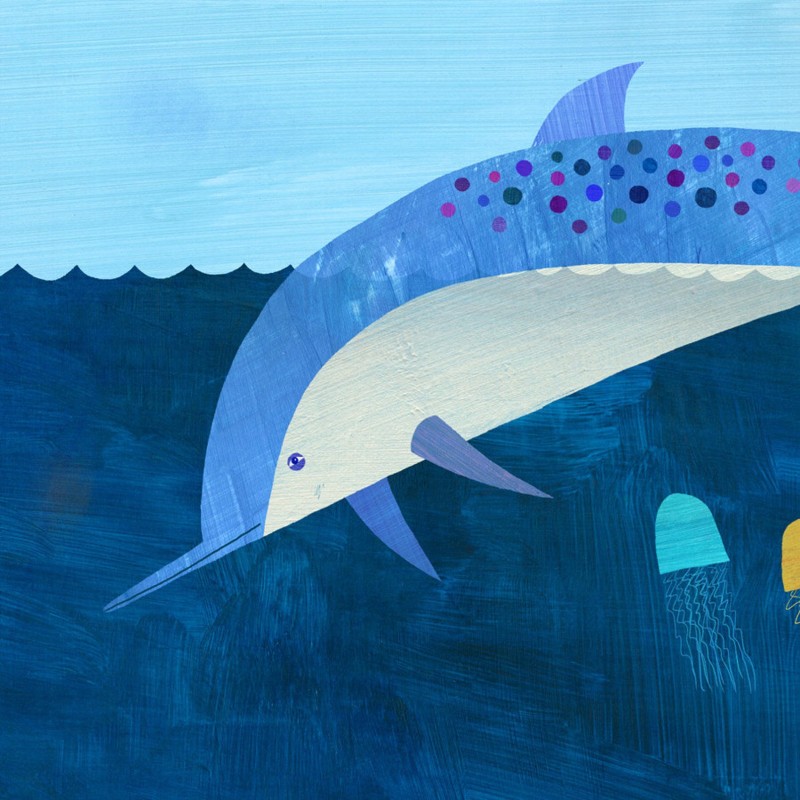
Sicily Environmental Fund is a great example, of something we could adapt to do here, it’s just a case of finding environmental and financial experts. It invites individuals and companies to invest, then gives grants to help people on this beautiful island (which gets 2000 hours of sunshine a year!) to do good:
- Wildlife Citizen Observatory – a system to educate the public on preventing wildfires.
- Growing Connections – transforming unused urban space into community gardens.
- Unpacked Shopping – training local shops to embrace zero-waste packaging options.
- Plastic-Free Schools – healthy vending machines, to avoid plastic drinks bottles.
- Untangling the Sea – removing ghost fishing waste, and training artisans to upcycle.
An Amazing Nature Poem (about snakes!)

DH Lawrence is more known for writing banned novels, but his nature poems are sublime – far better than his cheeky fiction. Born in Nottingham, he ran off with his tutor’s wife, though they did stay together for the rest of their lives, until his early death age just 44.
While they lived in Sicily, DH wrote Snake. On coming across a venomous reptile, his ‘English education’ tells him to throw a stick at it – the snake is not injured but convulses and goes back underground. Immediately he feels shame, missing out for a chance at meeting one of the ‘lords of life’.
This poem will kind of make you love snakes, even if you’re terrified of them. Read it aloud!
A snake came to my water-trough
On a hot, hot day, and I in pyjamas for the heat,
To drink there.In the deep, strange-scented shade of the great dark carob tree
I came down the steps with my pitcher
And must wait, must stand and wait, for there he was at the trough
before me.He reached down from a fissure in the earth-wall in the gloom
And trailed his yellow-brown slackness soft-bellied down, over
the edge of the stone trough
And rested his throat upon the stone bottom,
And where the water had dripped from the tap, in a small clearness,
He sipped with his straight mouth,
Softly drank through his straight gums, into his slack long body,
Silently.Someone was before me at my water-trough,
And I, like a second-comer, waiting.He lifted his head from his drinking, as cattle do,
And looked at me vaguely, as drinking cattle do,
And flickered his two-forked tongue from his lips, and mused
a moment,
And stooped and drank a little more,
Being earth-brown, earth-golden from the burning bowels
of the earth
On the day of Sicilian July, with Etna smoking.The voice of my education said to me
He must be killed,
For in Sicily the black, black snakes are innocent, the gold
are venomous.And voices in me said, If you were a man
You would take a stick and break him now, and finish him off.But must I confess how I liked him,
How glad I was he had come like a guest in quiet, to drink
at my water-trough
And depart peaceful, pacified, and thankless,
Into the burning bowels of this earth?Was it cowardice, that I dared not kill him?
Was it perversity, that I longed to talk to him?
Was it humility, to feel so honoured?
I felt so honoured.And yet those voices:
If you were not afraid, you would kill him!And truly I was afraid, I was most afraid,
But even so, honoured still more
That he should seek my hospitality
From out the dark door of the secret earth.He drank enough
And lifted his head, dreamily, as one who has drunken,
And flickered his tongue like a forked night on the air, so black,
Seeming to lick his lips,
And looked around like a god, unseeing, into the air,
And slowly turned his head,
And slowly, very slowly, as if thrice adream,
Proceeded to draw his slow length curving round
And climb again the broken bank of my wall-face.And as he put his head into that dreadful hole,
And as he slowly drew up, snake-easing his shoulders,
and entered farther,
A sort of horror, a sort of protest against his withdrawing into
that horrid black hole,
Deliberately going into the blackness, and slowly drawing
himself after,
Overcame me now his back was turned.I looked round, I put down my pitcher,
I picked up a clumsy log
And threw it at the water-trough with a clatter.I think it did not hit him,
But suddenly that part of him that was left behind convulsed
in an undignified haste,
Writhed like lightning, and was gone
Into the black hole, the earth-lipped fissure in the wall-front,
At which, in the intense still noon, I stared with fascination.And immediately I regretted it.
I thought how paltry, how vulgar, what a mean act!
I despised myself and the voices of my accursed human education.And I thought of the albatross,
And I wished he would come back, my snake.For he seemed to me again like a king,
Like a king in exile, uncrowned in the underworld,
Now due to be crowned again.And so, I missed my chance with one of the lords
Of life.
And I have something to expiate:
A pettiness.
Baby Tortoise (also by DH Lawrence)
Lawrence’s poem ‘Baby Tortoise‘ also speaks to empathy for other creatures:
To open your tiny beak-mouth, that looks as if it would never open
Like some iron door:
You draw your head forward, slowly, from your little wimple
And set forward, slow-dragging, on your four-pinned toes,
Rowing slowly forward.
Rather like a baby working its limbs.
Except that you make slow, ageless progress
And a baby makes none.
Traveller,
With your tail tucked a little on one side
Like a gentleman in a long-skirted coat.All life carried on your shoulder,
Invincible fore-runner.


